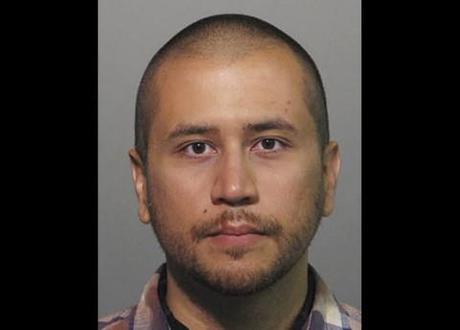
George Zimmerman was arrested on April 11. Photo credit: Sandford Police Department
George Zimmerman is behind bars, six weeks after he shot and killed 17-year-old Trayvon Martin and after a nationwide campaign calling for his arrest. But while some commentators are wondering whether the 28-year-old self-appointed neighbourhood watch coordinator can expect a fair trial, legal experts question whether he’ll even see a trial at all.
So, what happens now?
The charges. Zimmerman now faces a charge of second-degree murder with a firearm, a first-degree felony that is punishable by 25 years to life in prison.
What’s next? Zimmerman is set to appear in court on Thursday for an arraignment; he will likely plead not guilty. As second-degree murder is a non-bondable offense, Zimmerman is not immediately eligible for bail; his lawyer will likely ask that his client be allowed to post bond and be released from custody. Within the next 15 days, prosecutors must provide Zimmerman’s legal team with “discovery”, the evidence the prosecution possesses against him. Much of this will also be released to the media, so expect a steady drip of shocking headlines.
Self-defence immunity? Zimmerman’s claim of self-defence comes under Florida’s controversial “stand your ground” law, which allows individuals to use deadly force in situations where they feel in danger of serious injury or death. The Miami Herald reported that once Zimmerman’s legal team is in possession of all the evidence against him, they can file a motion for immunity under the law. “A judge must hold an evidentiary hearing and decide by a ‘preponderance of the evidence’ whether Zimmerman was acting in self-defense. If a judge denies his motion for immunity, a date will be set for a trial in front of a jury. Zimmerman’s defense attorney could also ask for a ‘change of venue’, meaning he could be tried in a different county in Florida if a judge deems pretrial publicity has been so overwhelming that it is impossible for the defendant to get a fair trial.”
‘Stand your ground’ in focus. “Stand Your Ground laws were sold in US legislatures primarily as a victims’ rights measure, to limit what many saw as prosecutors second-guessing situations where someone had a split second to make a life-or-death decision to defend themselves with force,” The Christian Science Monitor reported. But in practice, it is a “a legal no man’s land”, and its application has “offended many people’s sense of justice”; one major complaint is that the scope of the concept of “feeling threatened” is too wide.
‘Stand your ground’ is a ‘legal no-man’s land’.
Hurdles for the prosecution. But “stand your ground” is the law in Florida and accordingly, prosecutors in the case against Zimmerman need to prove that he intentionally went after Martin, nullifying his claim to self-defence. Reported Reuters, “The prosecutors must prove Zimmerman’s shooting of Martin was rooted in hatred or ill will and counter his claims that he shot Martin to protect himself while patrolling his gated community in the Orlando suburb of Sanford. Zimmerman’s lawyers would only have to prove by a preponderance of evidence — a relatively low legal standard — that he acted in self-defense at a pretrial hearing to prevent the case from going to trial.” Legal experts told the new agency that there’s even a good chance that the case will be dismissed by a judge before it reaches trial.

